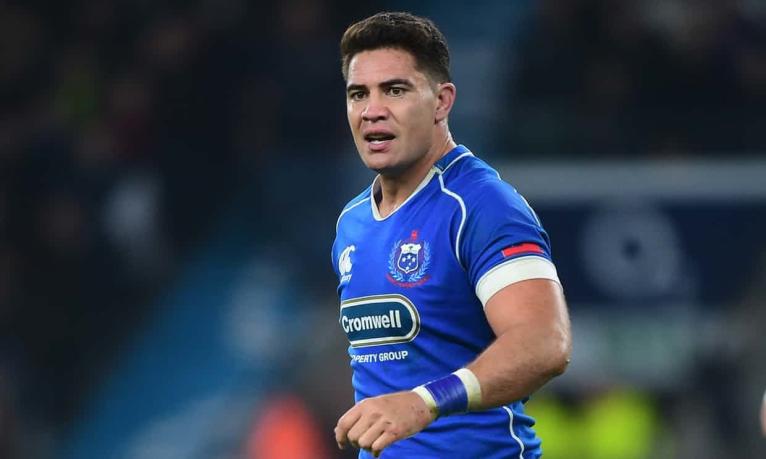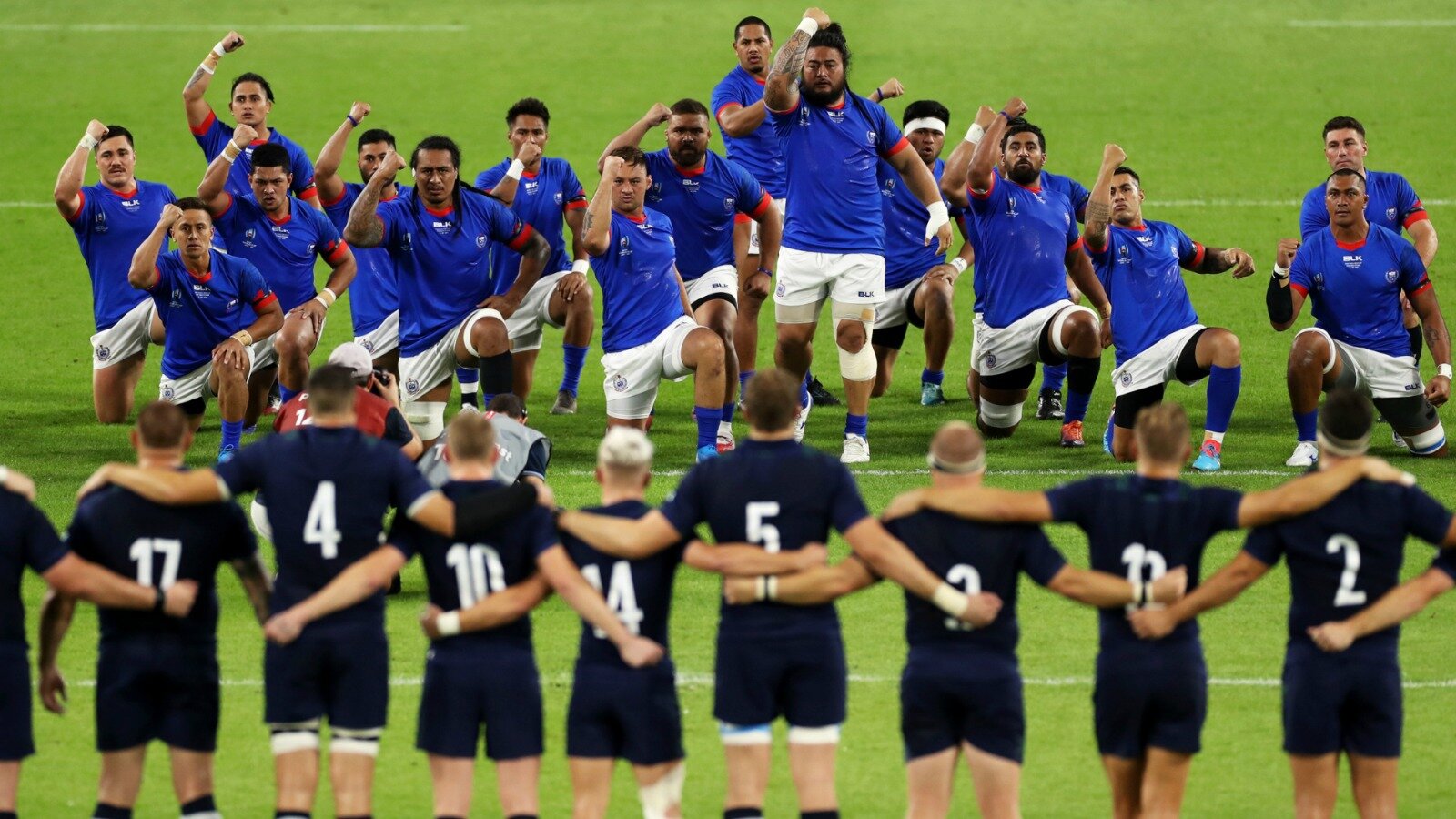'Scotland have probably done the most out of all the Tier 1 Nations to support the Pacific islands'

Hot on the heels of his coruscating documentary Oceans Apart, former Samoan international and Pacific Rugby Player Welfare (PRPW) CEO Daniel Leo has claimed that the Scottish Rugby Union (SRU) – roundly criticised for their role in the scrapping World Rugby’s proposed Nations League in 2019 – have treated the Pacific Islands better than even their closest neighbours.
Speaking to the Scottish Rugby Podcast, Leo said: “I want to thank everyone on this platform who has supported the Oceans Apart film and got behind us. We have a strong connection in Samoa with Scotland and we’re thankful to Scotland rugby as well.
“We’re not quite where we need to be in terms of Tier 1, but I think that of all of those Tier 1 nations, Scotland can be proud of the fact that they’ve done a lot, probably the most out of all of the Tier 1 nations to support us. I have some fond memories of playing the Scots, not just at Murrayfield but also in Samoa, which I can’t say about anyone else.”
Despite the Nations League set-up being criticised at first for excluding the island nations – who provide approximately 25 per cent of all professionals around the world – and then the revised edition for increasing the workload on players, Scotland were singled out for its failure to launch.
Paul Rees wrote in The Guardian ahead of the Scots’ fixture against Japan at RWC 2019: “Few neutrals will be rooting for them and for many it would be karma if the country behind the collapse of the Nations League, and the pathway to the top for emerging nations, were knocked out by a tier-two country”.
Although a charge of financial protectionism could potentially be levied at the SRU, it was not only them that the rejected the plans, so to suggest they were the villains behind the collapse is simply false, and seemingly motivated by the furore over comments made by CEO Mark Dodson ahead of the Japan match which nearly didn’t happen in the aftermath of Typhoon Hagibis.
Soon afterwards, New Zealand Rugby chairman of the time, Brent Impey, namechecked Scotland along with Wales, Ireland and England, for preventing the “Homecoming” rule from coming into play denying Pasifika a chance to represent their heritage nations after playing for Tier 1.
“I’m very tempted — I probably won’t go quite this far — but I’m very tempted to say it’s virtually colonialism”, said Impey. “You look at them, you look at their teams and what they have done in terms of rules that suit themselves”
“Aside from the – I probably won’t go quite this far but I’m very tempted to say – hypocrisy of Impey’s statement, is the fact that no player from the Pacific Islands has yet played XVs rugby for Scotland on residency grounds.
Australian-born of Fijian descent, Glasgow Warriors winger Ratu Tagive has trained with the national side but is yet to be capped. Only compatriot Joseva Nayacavou, has worn the thistle on his chest and that was in the World 7s series.
Accusations of Northern Hemisphere clubs treating their Islanders like commodities are commonplace but cannot be aimed at either of those run by the SRU.

One of Leo’s colleagues at PRPW is Ben Atiga, a former All Black of Samoan and Tongan parentage who spent the last two seasons of his playing career with Edinburgh before retiring in 2014. After packing up his boots for the final time, Atiga has stayed in Scotland’s capital to work with the SRU as a resettlement advisor and player liaison, so that incidences like the case of Rupeni Caucaunibuca – so tragically highlighted at the start of Oceans Apart – do not occur here.
Atiga’s role within the SRU is clearly paying dividends, a case in point being that of Fijian superstar Leone Nakarawa.
Having seen his contract torn up by Parisian giants Racing 92 for allegedly not returning on an agreed timescale, Nakarawa – who was back in his homeland to help build a house with the comparative riches he’d earned in Europe – found himself without a club.

As one of the best locks in the world, there was no shortage of suitors with large wads of cash looking for his signature. Instead Nakarawa returned to the club where he knew he would be treated properly and welcomed back by a support who adore him: the Glasgow Warriors.
The blame game and finger-pointing, particularly from the Southern Hemisphere unions, to what is a global issue, has to end. None of the top tier nations can claim the moral high ground. When asked about the potential of a Super Rugby franchise for Pacific Islands-based players, and the Moana Pasifika vs Maori All Blacks match that played out this weekend, Leo was wary: “The concept is a good one, for a long time we’ve lacked a professional pathway closer to home for our players, particularly in Super Rugby. It’s an avenue not just of exposure for our players but a chance to hopefully represent their island nations.
“I haven’t got the confidences that I need yet from the organisers yet. The proximity of the New Zealand Rugby Players Association (NZRPA) in tabling that bid for Super Rugby has me worried to be quite honest.
“The NZRPA’s mandate it is to look after and progress New Zealand professional players, so I don’t really know what they’re doing chairing and tabling a Super Rugby team which is supposedly for the benefit of the benefit of the Pacific Islands.

“I’ve also got questions for when they (Moana Pasifika) play[ed] the New Zealand Maori. Is it the case that all the players in that team against the Maori will be locked in and qualified solely for the Pacific Islands?
“Any team that’s going to brand themselves as Pasifika has got to be for the greater good of the Pacific Island unions. They’ve got to be based long-term in the islands to inspire our people, the economic benefits like tourism, and it’s got to be for the greater development of our local unions and the players coming through have to qualify for the Pacific Islands.
“It’s a bit clouded at the moment, they’re asking us to commit for the next 10-15 years, but for me we have to know a little bit more. I might be a little bit cynical but in history even our closest neighbours New Zealand haven’t always done the best thing by the Pacific Islands in terms of helping us develop. We have to ask these tough questions, and if not us, then who else?”


















































